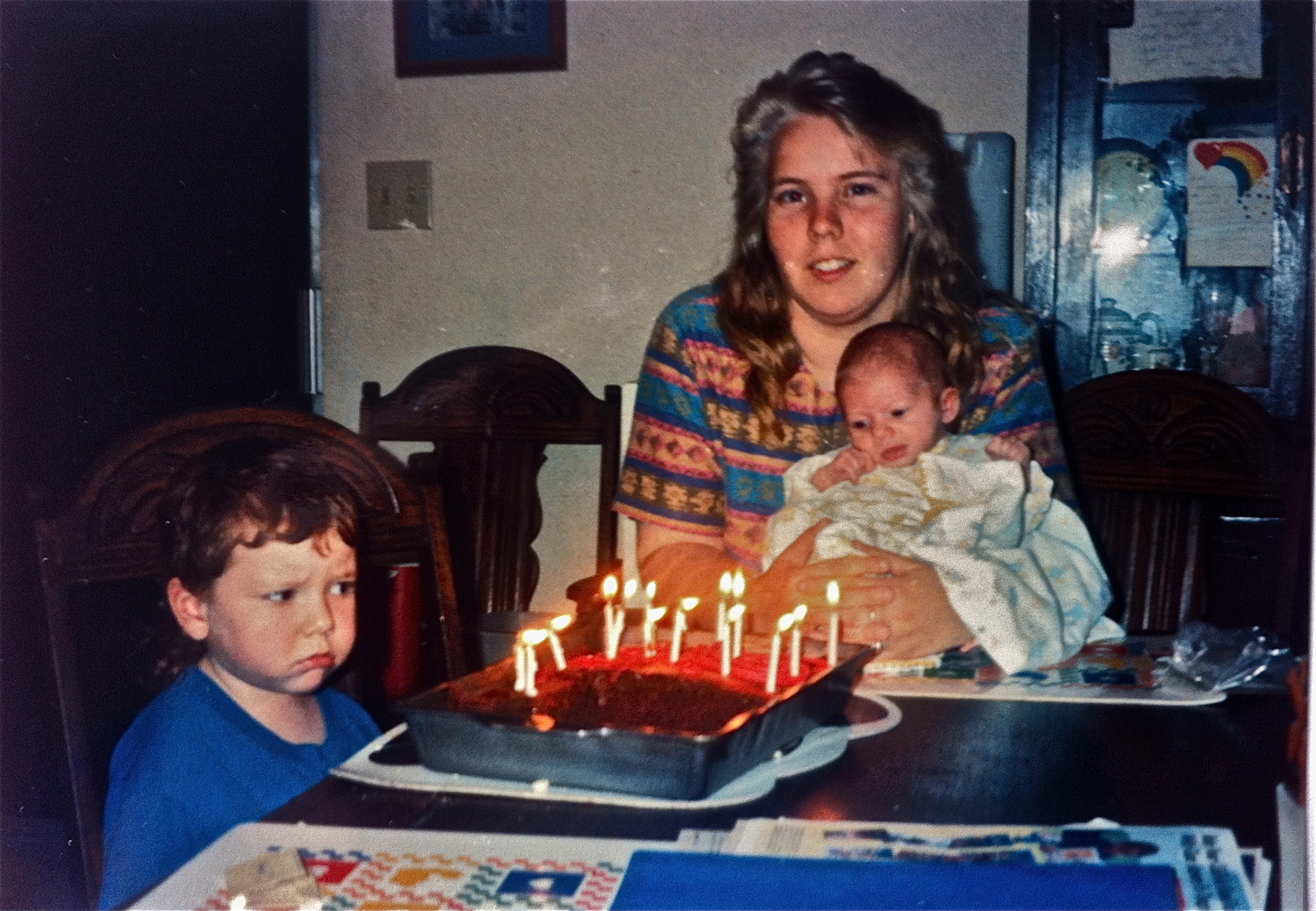(This is the second in a series of three guest posts.)
Her actual, physical death is difficult to recite because it feels like I’m putting finality on her life, like she is irrevocably dead. Her coma lasted most of the last months of her life. She briefly came out of it before she died and had a week with random periods of lucidity.
I was able to talk to her once in that time. Her voice was thin, destroyed from several failed attempts at intubation. She responded in kind when I told her that I loved her very much. Before long, the sedation of her last few months seeped into her veins and calcified in her left leg, creating a wad of blood that found its way to her heart around four in the morning on February 12th.
 Ahhh, the Bush Senior years. That’s Brenda with the power hair. She loved birthday parties and holidays. That’s me in the blue, and you can just see my enthusiasm. Good times.
Ahhh, the Bush Senior years. That’s Brenda with the power hair. She loved birthday parties and holidays. That’s me in the blue, and you can just see my enthusiasm. Good times.
So I’m on an escape to Central America. Old buses packed with polite Maya, roofs packed with tires and large bundles of fruit or spices, children in slings sleeping blissfully against their silent mothers, embroidered blouses, and middle-aged men willing to give bad directions all seemed to do me good at first, but I got too comfortable in Xela. New friends and a friendly family who patiently listened to my broken Spanish were refreshing, but ultimately slowed me down enough that the thoughts and memories found me, and I’d start to cry.
At forty, Brenda had spent more than two decades in swelling and slaking tides of depressed mania. Notwithstanding, losing Brenda was like losing a mother. Even as an adult, after we had grown apart substantially, I called her to ask her for advice and tell her when I got a good, or bad, grade on my papers.
Our relationship was complicated by her mental illness and the stigma I attached to the way she existed with her mental illness. She was heavily medicated and in the last decade she hadn’t done anything more productive than becoming part of the Parent Teacher Association — I love to imagine the cataclysmic disturbance she created in a room of composed, normal people, with her gnarly teeth and disheveled hair, accessorized with a Winnie the Pooh t-shirt and her giant plastic diet coke cup.
Wherever she lived always looked like a drug-squat, with brand-name food wrappers covering the ground. Offensive smells saturated the air. Despite the fact that her husband made plenty of money, once a year an eviction forced them to move — always in the dark of night that they’d pack up and leave. That would reveal stained/destroyed carpet, a bedroom filled with individual-sized snack wrappers and pill-bottles, crumbs, soda cans, a cat box that hadn’t been changed since the initial move-in, and her husband’s giant, clear-plastic tupperware containers filled with Star Wars toys.
Our father built the house that was supposed to be their permanent house, it was supposed to be an end to the evictions that left everyone soaked in anxious, resentful sweat. Brenda and her husband took out a mortgage for the construction materials, my dad and the rest of the family worked for free, and they moved in.
– Tyler
